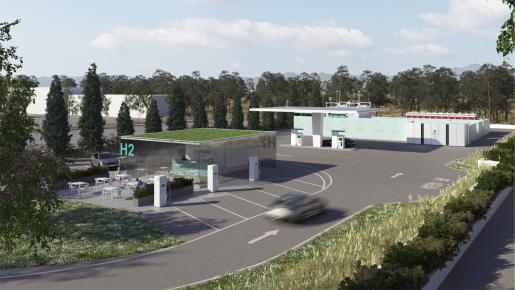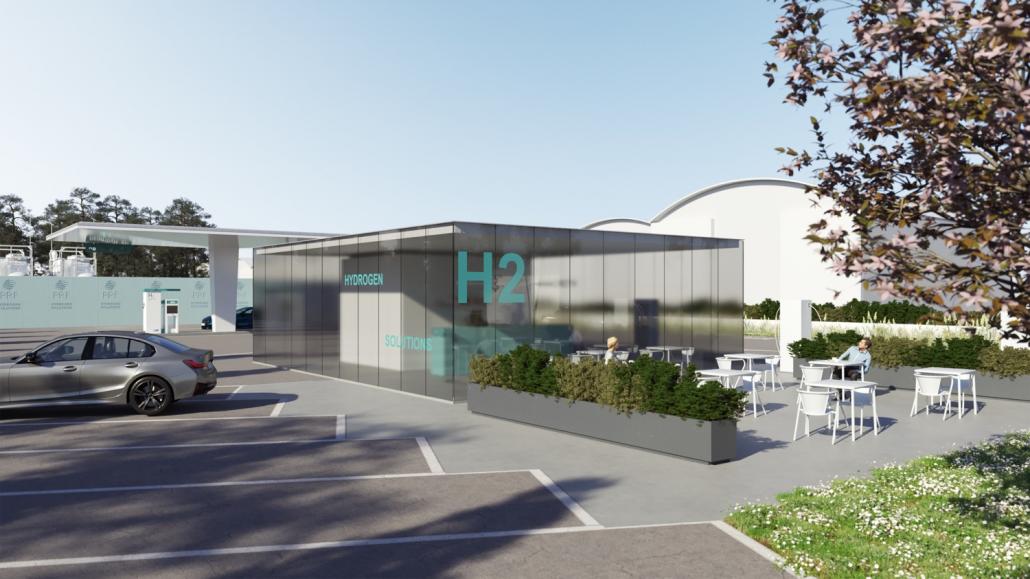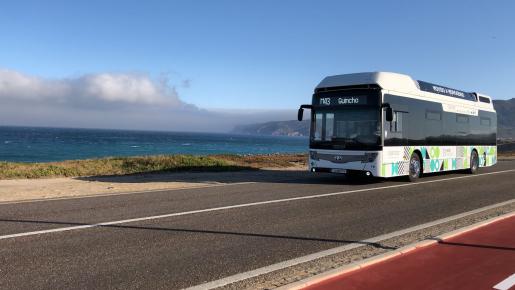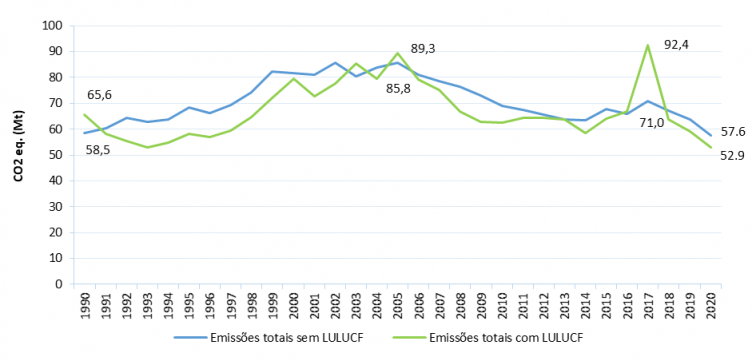
Cascais Municipal Council (CMC), through the municipal company Cascais Próxima, responsible for managing mobility, urban spaces and energy, is building the first production, storage and supply unit for hydrogen-powered vehicles, once again putting the municipality of Cascais one step ahead on the road to innovation and sustainability.
Aiming to invert the paradigm we currently face, production should begin this year.
We know that 50% of greenhouse gas emissions come from the transport sector, which makes the search for more sustainable alternatives one of today's main concerns. In this context, electric mobility, biofuel and hydrogen - the so-called sustainable fuels - are the main protagonists of a greener future.
For Cascais, the use of hydrogen is a key part of the strategy defined to achieve carbon neutrality by 2050, i.e. making the balance between emissions and removals of carbon dioxide and other greenhouse gases (GHG) from the atmosphere zero. In this context and in another context, Cascais Ambiente is developing a project to produce H2 from urban waste.
The National Strategy - H2 sets itself the main targets for 2030:
5% green hydrogen in final energy consumption, road transport and industry;
15% of green hydrogen injected into natural gas networks;
50 to 100 hydrogen refuelling stations;
2 to 2.5 GW of production capacity (electrolysers).
Green hydrogen is considered to be produced exclusively from processes that use energy from renewable sources. For this reason, green hydrogen should be understood as renewable hydrogen, whose GHG emissions throughout the life cycle of its production should be zero or very close to zero.
Source: Portuguese Environment Agency

- By building a production, storage and supply unit, Cascais becomes the first municipality in the country to have one of these infrastructures.
- Cascais has gone from a pilot project to an efficient and reliable hydrogen-powered public transport (PT) operation, with four buses already running on the M38, M43 and M44 lines.
- This unit makes CMC self-sufficient, reflecting a strong commitment to sustainability.
- Initially, the unit will be used for municipal self-consumption. All the necessary certifications have been requested to open it to the public.
- It makes it possible to use energy and water efficiently.
- It avoids the production of waste, promoting its valorisation or disposal in order to avoid or reduce its impact on the environment.
- It represents an investment of around one million seven hundred thousand euros by the local authority.
- The station will have the capacity to produce up to 389kg per day, of which only 100kg is needed to supply the daily TP operation. The rest of the production will serve other stakeholders who wish to accompany the transition to sustainable mobility using hydrogen.
- There will be two dispensers for refuelling at 350bar and 700bar.
The experience gained over the years has shown that decarbonising public passenger transport must include the use of hydrogen as an effective solution, both for its environmental and operational advantages:
- The hydrogen solution provides greater autonomy: while the electric bus has a range of 300 to 350 kilometres, the hydrogen fuel cell bus has an approximate range of 600 kilometres (practically double).
- Charging times are also significantly shorter: an electric bus takes at least 4 hours to fully charge, while the hydrogen fuel cell bus refuels in 10 minutes.

The experience gained over the years has shown that decarbonising public passenger transport must include the use of hydrogen as an effective solution, both for its environmental and operational advantages.
This project responds to 4 Sustainable Development Goals (SDGs):
- 7. affordable and clean energy;
- 11. sustainable cities and communities
- 12. sustainable production and consumption
- 13. climate action.

Read more: Changes in national greenhouse gas emissions